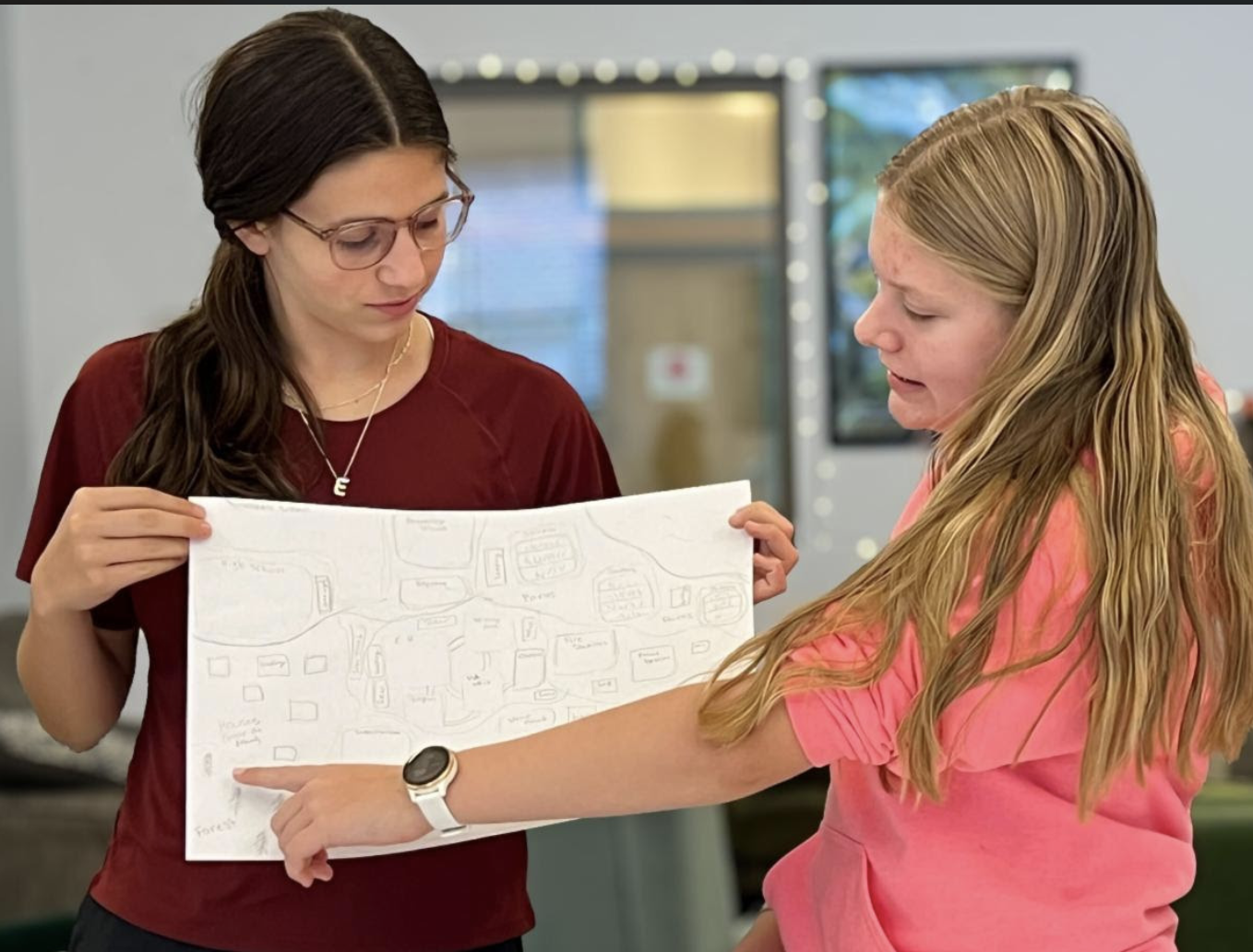In Ms. Camila’s Upper School Elective Perspective Drawing Skills class, students are learning to create…
Room 8 Blog Post: Happy New Year!
Room 8 is off to a running start in 2024!
What’s on tap for this semester? After exploring traditional literature and a smorgasbord of information about the ancient world-– many times and many places – and their connections to our own world, we’re going to do some more focused exploration.
First, we’re going to look at the transition some cultures made from hunting and gathering to agriculture (how, why, when and where). We’ll focus on the fertile crescent using texts, artifacts and tomorrow’s field trip, read a variety of resources, and develop opinions about the pros and cons of this change. We’ll also do one final round of revisions of our Morning Girl story in light of some of this information before we publish our chapter 10s (so if you want to read the rest of the book before you read your student’s final chapter, now is your chance.)
Second, this semester we’ll be reading and analyzing selections of Ovid’s Fasti . This extensive poem about the Roman calendar and dates is a rich source of information about Roman politics, daily life, religion, culture, and history (pre 8 CE). Ovid also references a fair amount of astronomy and Greek myths, retold through Roman eyes, is full of rich vocabulary words, many of which have recognizable Greek and Latin roots, and contains plenty of unfamiliar words on which to practice decoding skills. It will also become (later) a good springboard for more formal discussions about poetry, forms, rhyme, rhythm, and meter, etc.
Fasti is also a good starting point for discussions of different forms of government. We’ll be exploring the Greek, Roman, English, and Iroquois roots of our system of government laid out in the constitution as we follow the primaries and note how states and political parties make different decisions from each other (primaries vs caucuses, rules to be included on the ballot, etc.). We just read an essay about the Roman calendar which mentioned that one reason Julius Caesar standardized leap years was because officials had a habit of adding intercalary months (leap months like in the Jewish or Chinese calendars) to extend their terms in office. Students made the comparison to Trump and we were off on an excellent discussion of the structure of the presidency and vice presidency laid out in the constitution, the switch to having the president pick the vice-president (12th amendment so they come from the same political party) and the reason for the 22nd amendment (FDR). As the 2024 races unfold, please don’t hesitate to reach out with comments, questions, compliments or concerns.
Later on, we’re going to be doing some group and individualized research projects about various aspects of various ancient civilizations.

